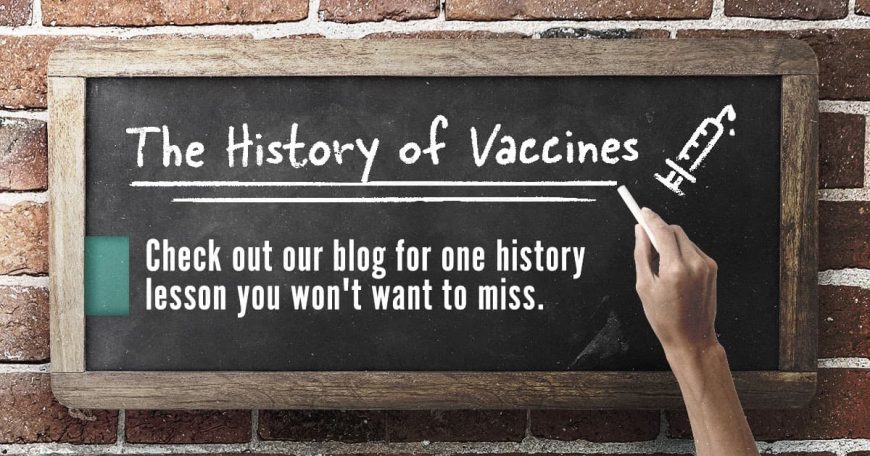
The CDC says, “Vaccines are one of the greatest success stories in public health.” Before vaccines, diseases like, measles diphtheria, and whooping cough posed serious threats to the well-being of individuals everywhere. However, thanks to routine immunizations, their devastating effects are preventable. Though the history of vaccines isn’t always cut and dry, their humble beginnings laid the groundwork for saving millions of lives each year.
Early Evidence
When most people think of the birth of the concept of vaccines, they think of Edward Jenner. In the late 1700s, Jenner most notably tested a method that involved taking material from a blister of someone infected with cowpox and inoculating it into another person’s skin. This is referred to as arm-to-arm inoculation.
Surprisingly, evidence exists that the Chinese employed a similar smallpox vaccination method as early as 1000 CE. During this time, Asian physicians gave children dried crusts from the lesions of people suffering from smallpox to protect against the disease. Some children developed immunity, while others developed the disease. The practice was also used in Africa and Turkey before spreading to Europe and the Americas.
200 Years

Over the next 200 years, Jenner’s method underwent medical and technological changes that resulted in the eradication of smallpox. In 1881 Louis Pasteur, a French biologist, evaluated immunization against anthrax by injecting sheep with attenuated forms of the bacillus that causes the disease. Attenuation takes an infectious agent and alters it to become less dangerous. Four short years later, he developed a protective suspension against rabies. By 1980, polio cases declined by 99 percent. Many other vaccines help teach your immune system, how to combat germs and their diseases such as mumps, measles, typhoid fever, cholera, plague, tuberculosis, pneumococcal infection, tetanus, influenza, yellow fever, hepatitis A, hepatitis B, some types of encephalitis, typhus, and more.

Before creating a new vaccine, scientists take several factors into account. For example, they’ll consider who is most vulnerable, what the immune response will be to a germ, and which method is best to use to develop the vaccine. It’s important to note that viral infections do not respond to antibiotics, so vaccines for viruses provide important immune protection.
Join an RSV Study Today!

As more and more prevalent diseases become preventable through vaccines, their impact continues to lessen. ActivMed Practices & Research is seeking healthy volunteers over the age of 60 to join a respiratory syncytial virus (RSV) vaccine study. RSV is a type of respiratory infection that can cause serious illness in older adults. Since there is no vaccine currently available to help protect individuals from the disease, there is a great need for its development. To learn more, click the location nearest you below:
Sources:
https://www.britannica.com/science/vaccine
https://www.historyofvaccines.org/timeline/allhttps://www.chop.edu/centers-programs/vaccine-education-center/vaccine-history/developments-by-year
